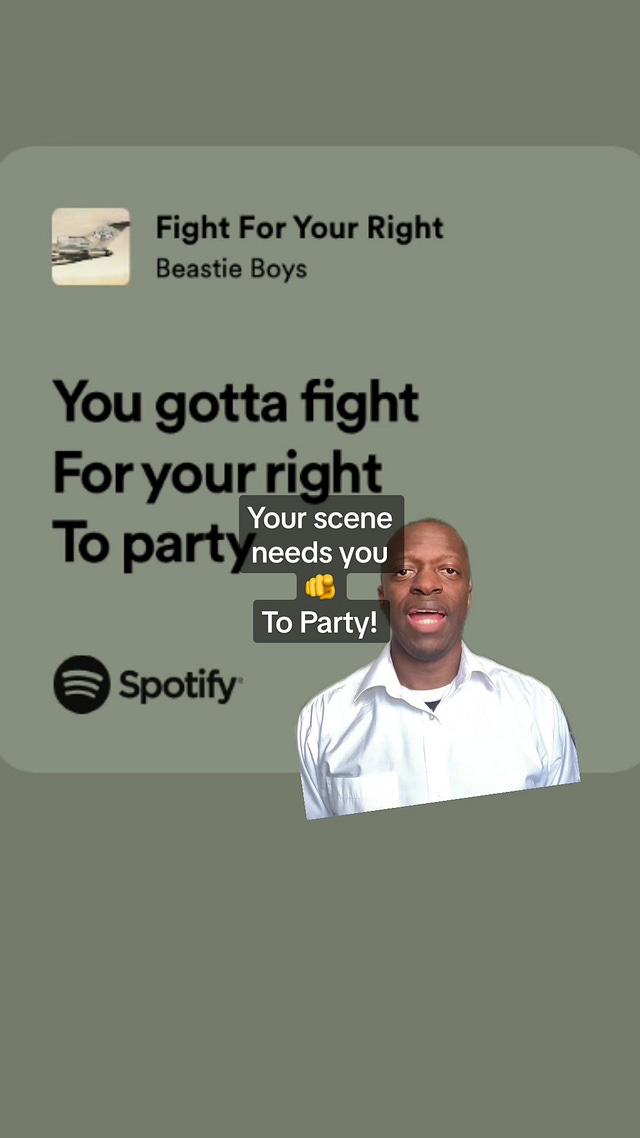Absorbing the world in its entirety through our screens proved terribly claustrophobic. Our eyes and heads ached from the strain of looking at these small rectangles of light for hours on end. It was anxiety provoking. Deadening. Boring. Antisocial. For many, it proved bad for business, learning, relationships, conversations, political stability, health, heart, and soul. Humanity lost control. This was not the futuristic terror of rogue robots killing us, enslaving us, or stealing our jobs but the everyday realization that the computer technology we placed so much faith in for the future was lessening our experience as human beings right here in the present. When the highlight of your week is scoring an expired packet of yeast in the supermarket, you’re a long way from utopia.
- David Saxe, The Future is Analog
During the solar eclipse on April 8, Internet activity plummeted across North America. It might be safe to assume that the next time North Americans will be similarly disconnected (or connected to their surroundings) will be August 23, 2044, when the next solar eclipse is scheduled to return to the continental United States.
Or perhaps it won’t be safe to assume that. By 2044, there will probably be AR headsets that replace those quaint flimsy eclipse glasses from the library by automatically darkening at the time of the eclipse, complete with AR infographics with fun and educational facts as well as some hopeful AI-generated music.
We may not have a democracy by then. According to this penetrating analysis that inspired today’s newsletter, tech undermines democracy by design. I suggest clicking on that link if you want to know more about that. If you still have room on your plate, fit in this Substack from
on the current death of debate culture. Favorite quote: “People don’t shout at one another; they beseech the hall monitors above to ensure no one gets to shout at all.”My focus here is on the general war between IRL and URL. Like the Compact piece says, tech companies do not want you doing anything offline. As Netflix’s CEO Reed Hastings said, “We’re competing with sleep.”
The war started on March 15, 2020, when COVID lockdown began. That month, I was an essential worker, but it didn’t matter. All entertainment, all blowing off steam, hell all 12 step meetings had to be done through digital media. The tech companies were understandably thrilled about all this, leading many to suspect that Bill Gates or the forces behind 5G created COVID. The truth is, our technopoly has long wanted us on house arrest. Even though radio was popular during the ‘20s, it wasn’t until the ‘30s that “Amos and Andy” delivered advertiser attention at unprecedented rates. Families that spoke at the dinner table were silent for what many would argue was the first sitcom ever. Movie theaters, afraid of losing families to the radio at home, piped in the show on speakers before the feature started. (all this from Tim Wu’s The Attention Merchants). About a year ago, I wrote a timeline of home entertainment. A quick gloss on that: the sixties was a break between the suburban sitcom 50s and the home entertainment-tech 70s, with hippies hitting the road and discovering the wonders of nature, to paraphrase one of their favorite bands.
Our current moment is paradoxical: there are some Gen Zers who never want to leave the house and prefer bed rotting, an “activity” they no doubt pursued during March of ‘20. But towards the beginning of the month, discussing dance club-style restaurants, After School’s Casey Lewis asked “Are Gen Z New Yorkers an exception? Or are young people in New York the beginning of a shift back towards going out?”
I’m not placing my bets yet, but I can tell you anecdotally that I am itching to get out. And I say this as someone who was itching to get out, but succumbed to his social anxiety and bed rotted weekend after weekend, long after we didn’t need masks or vaccine IDs.
By “getting out” I don’t just mean out of the apartment. I also mean out of Filterworld, a term coined by Kyle Chayka from his new book. What stood out to me was his comparison of political and cultural filtering.
While political filter bubbles silo users into opposing factions by disagreement, cultural recommendations bring them together toward the goal of building larger and larger audiences for the lowest-common-denominator material. Algorithmic culture congregates in the center, because the decision to consume a piece of culture is rarely motivated by hate or conflict.
This explains the woke-pop culture Millennial consensus of the past ten years. Yes there was more diversity, somewhat. But look closer at the black characters. Were they lived-in, with regional accents and deep-seated prejudices? Or were they walking PSAs for tolerance? How about the drag queens? Were they doing fiercely hilarious cabaret numbers or reading stories to kids? Yes there was diversity, but it was all filtered to pander to guilty white liberals eager to convince meemaw and peepaw that Tyrone and Marilyn Manroe are actually decent people deep down.
Beyond the lack of true diversity, there is also a lack of true culture. To this day, with all the political tumult and the insanity coming from the AI sector, the Internet is…still talking about Drake, Taylor and Kanye. Culture is stagnant. Well culture that is closer to the IRL world of live entertainment, with Coachella being a fat turd this year. Memes are crazier than ever, and that is where culture seems to be most alive now. In the compressed, under-the-radar shadows of URL. Good luck trying to get compensation for those memes though. Or trying to get a meme that leaves a lasting impact. Cyberspace is weightless. No steak, all cotton candy.
That weightlessness is spilling over to IRL by the way:
Last October at a Dallas concert, the 1975’s Matty Healy gave a 10-minute speech in front of the venue’s monitors as they played satisfying slime videos and clips of the video game Subway Surfer.
The stunt was a nod to Gen Z’s inability to pay attention to a single stimuli for more than a literal second.
Later on, in the Zine post I linked to, there is a critique of the emerging neo-Luddism, with much of it involving tech. Matt Klein gives a less generous reading of this than I would. The hippies of the ‘60s also used technology. They played transistor radios in the woods and Grateful Dead records in their wood cabins.
This brings us to the nature of the war between IRL and URL. The URL side wants us all to secede to the Metaverse, much like Vault-Tech in the deceptively simple Amazon Prime hit show “Fallout” builds underground fallout shelter vaults so that everyone hides from the Earth’s surface, safe from radiation. The IRL side mainly wants a union between URL and IRL. In the ‘00s, there was a much larger give and take between IRL and URL. Or, a thriving mesoculture:
In the ‘00s, when the microculture was in its infancy, there was something I like to call the mesoculture. This was the culture in between the macroculture and the microculture. What was the mesoculture in the ‘00s? Indie rock, small press literature, pretty much anything that was too small to be macro, too IRL to be micro.
This proved to be a great system for cultural advancement: start off in the microculture of URL and the mesoculture of IRL for a shot at macrocultural impact. Unfortunately, we have moved from this model to a URL microculture and a not-IRL macroculture that is strangely even more removed from IRL.
Turns out the mesoculture is not only vital for advancement: it might be the biggest weapon in the war between IRL and URL. I’ve seen it for myself. I found out that
was going up at a reading for ‘s Mars Review of Books event at Sovereign House at Dimes Square.Woah woah woah back up there pal! Didn’t you say that Dimes Square is dead? Now look who’s got raw egg on their face!
I still maintain that the impact seems to be felt only by those who are actually in Dimes Square, but so far the Dimes Square scene is the best example of a mesoculture I can find (I have seen nothing comparable in Bushwick yet beyond the electronica scene, which by definition has nothing to say [still, rent is cheap enough for me to continue to stay there and it’s close enough to Dimes Square, where nobody actually lives. Plus let’s not forget Bushwick and Williamsburg gained notoriety initially for being so close to downtown Manhattan]).1 Like I said about the new great refusal:
Another direction the burgeoning counterculture may be headed? It may fall into the same trap the communists in Greenwich Village found themselves in during the ‘30s. Initially, many of the true believers rejected jazz and folk music. As the fellow travelers realized they had no viable cultural output, they changed directions and embraced folk music. Too little too late. Commercial radio kept families slack jawed in their living rooms listening to Amos and Andy while the movie theater became an escape portal into the great simulation. So the question for the new crop of rebels cannot just be “What side are we on” but “What are we gonna build?”
As I waited for the reading to start (live events never start on time, thank God) I met Ross Barkan and
for the first time in person, in addition to reconnecting with . As so often happens at IRL gatherings, you can only anchor yourself to people you know for so long. Eventually, you will either have new people talk to you or you will be introduced to new people. I’m not going to say that all the interactions went smoothly, but I will say that overall I was excited. Out of fear and out of elation. I was self-conscious at the event in a way I could never be if I just fucked off and stayed at home. Could the people behind me see the stage, etc.That night, there was no war between IRL and URL. It was a perfect union. At the risk of giving off shill energy, Substack has led to me meeting more people IRL than any other platform. It’s the opposite of Facebook in the late ‘00s for me, which was a network where I grudgingly “friended” acquaintances I already knew in real life.
I am too old and too in recovery to go to parties, but if you are young and are not a casualty of the billions of synthetic drugs that are out there, I suggest partying as a way out of the URL matrix.
One reason the indie sleaze revival was/is popular: party nostalgia. The ‘10s was notoriously, fastidiously neat. This decade is shaping out to get messier and messier. This may sound like an awful prescription, but sure sounds better than the legions who are currently getting high at their WFH jobs. I’m not trying to be old man river about someone smoking the jolly green off camera at a Zoom meeting. The issue is more how everything is getting flattened and consolidated. Work, play, pleasure, friendship, partying: it’s all one big sludgy blob of content. Log on, check in, burn out.
Soon, the decision to throw some more IRL time into the daily diet will be not just a mental health issue, but an entertainment issue. This Fast Company article says that as much of 90% of online content may be synthetically generated in two years. A possible solution?
If that’s the case, humans who want to engage with other humans and their creations may, for the first time in decades, have to avoid the internet and—gasp—return to the real world for authenticity. Sure, you won’t find shrimp Jesus there, but at least you’ll find some genuine human connection.
This is similar to what I suggested here and
suggested here in January 2023. But this isn’t a prescience contest. It seems like a no-brainer; if you want music, plays, anything that isn’t AI generated, you will be happier IRL, where the androids haven’t infiltrated yet.This should be an easy victory for IRL. Another easy victory may come even sooner: a bill to ban TikTok or force a sale to an American company passed the House. Even if it sells to an American company, I can see many youths throwing the app away and going IRL. Twitter just got ruined two years ago, with TikTok potentially following suit, how many more apps can people really get excited about? This isn’t to say there will be no online content. Instagram will probably do OK. But you can bet there will be a lot more FOMO-inducing footage of IRL things like concerts, readings, mesocultural things in general.
Or maybe I’m being haughty. I’m assuming that people will gravitate to each other instead of AI personalities. Perhaps the angry alt-left will, in the spirit of the great refusal. But what about the younger kids that grow up with friendly AI companions that listen really well? Right now, I am able to plug in any article that is too long to read into Gemini and have it summarize it for me, letting me know if the juice is worth the squeeze. How much better can future AI companions, how seemingly intently, can AI listen to what we think and offer a sympathetic ear? URL will stop at nothing to have us suck on their silicon teats.
At the risk of being yet another Substack writer who flies in the face of the current mental health discourse, this war against URL’s secession will not be for the weak. As I have stated multiple times on this newsletter, I am a recovering addict with anxiety and depression. I still needed to find courage. No one is exempt from being courageous. Not if they want to survive. Cowardice is not extinct, it’s just not a trending term. During COVID, some people with extreme social anxiety decided to use their disorder as a moral compass from which they could throw out questionable edicts like “thou shalt not hug.” Now, with the public health messaging gone, they use cutesy terms like “bed rotting” to promote their choice to not engage. Let’s not get it twisted either: work sucks and I am all about dropping out. But drop out and go to the park. The beach. Dropping out and doom-scrolling ain’t no revolution. It’s the same eclipse of the outside world that commuters on the train enjoy every day.
Ridgewood, Queens does have Woodbine, which I guess you could describe as an intentional community-space. I have yet to check it out but so far it seems more driven by an ethos than by either an aesthetic or an interesting philosophy. But I should give them a chance first.







Was such a nice surprise to meet you in person!
Great essay. There's definitely already an observable IRL counterculture in the very young. I think like all counterculture, it exists as the other side of the coin to (url) culture and +1 generation may see a counter to that counter. Both flavors of culture will forever be exist inside the scope of tech itself. In the last month we've had 2 people leave their house IRL and set themselves on fire for URL. I think the road to getting by in the world now is just acknowledging all that.